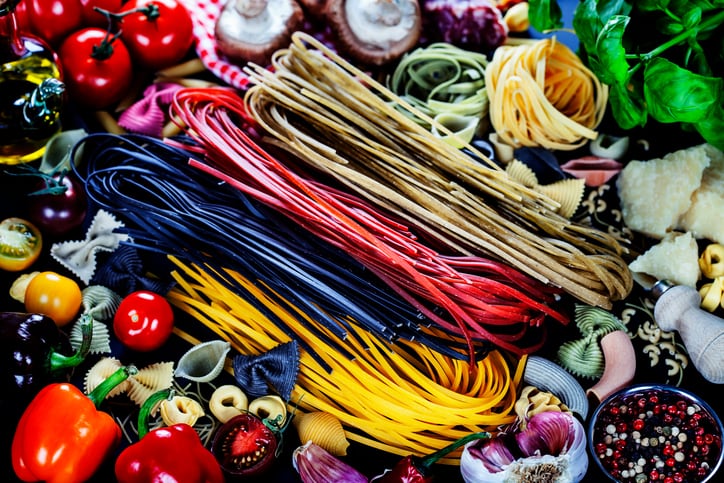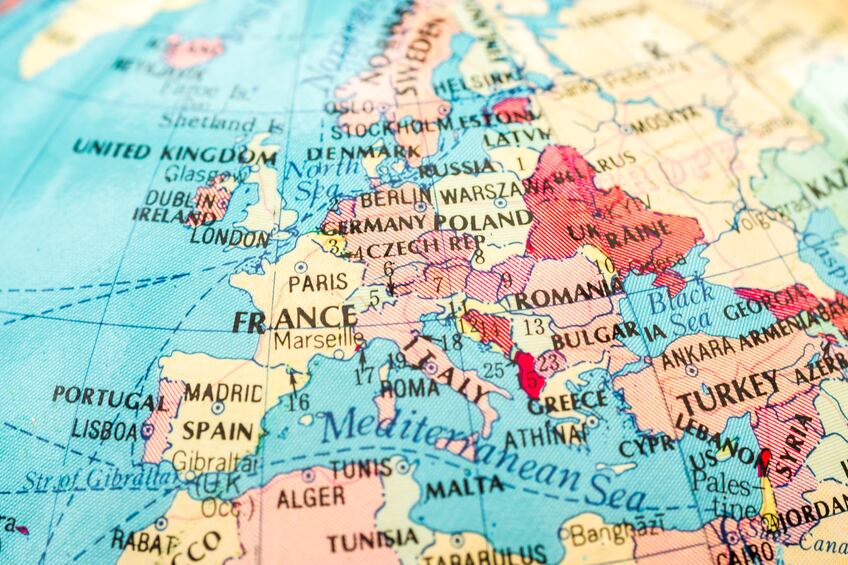In a recent communication to the European Commission, France’s Ministère de l’Economie et des Finances detailed the contents of the new ‘Act on the transparency of information on agricultural and food products’.
Additional requirements would include rules on how information is presented online and the ‘indication of origin of cocoa for cocoa products, in the raw or processed state’. As of 1 January 2021, the labelling of the origin of honey in blends and of royal jelly, in descending order by weigh, could also be mandatory.
Following on from the long-running debate in the EU over whether ‘meaty names’ should be used to describe plant-based products, France wants to act unilaterally to prohibit this practice. “Article 5 prohibits the use of names used to indicate foodstuffs of animal origin, to describe, market and promote foodstuffs containing vegetable proteins, beyond a threshold which will be set by decree,” the French government stated.
In a bid to protect its artisan cheesemakers, the French government also revealed the changes would also require ‘fromage fermier’, or farmhouse cheese, should only be used to describe ‘cheese matured outside the establishment, in particular for small farm producers’.
Other updates encompass labelling the origin of alcoholic drinks including wine and beer.
Agnès Pannier-Runacher, Secretary of State to the Minister of the Economy and Finance commented: "Improving the labelling of food products is essential to allow consumers to become real ‘consumer-actors’. Many French people are committed to promoting short [supply chains], quality production and supporting our farmers. This enhanced traceability confirms our policy in favour of ‘Made in France’.”
Fragmentation of the single market?
The single market accounts for 90% of European food sector sales.
EU regulation on food information to consumers allows Member States to introduce additional mandatory labelling requirements for specific food categories - including indicating a products origin - if justified on the grounds of public health or consumer protection.
France and Italy have been at the forefront of efforts to establish stricter rules around food labelling, in particular country of origin labels, which are viewed as a way to support domestic food producers.
For instance, France introduced an ‘experiment’ obliging producers to label the origin of milk, milk in dairy products and meat in processed products. An extension of these requirements has until 31 December 2021 was recently approved by the European Commission.
This shift, French and Italian proponents have suggested, is in the interests of consumers who want transparency around where their food comes from. Commenting on the new bill, Minister of Agriculture and Food Didier Guillaume described it as a ‘step forward for all French people’.
He added that be wants to see the initiative rolled out across the European Union as part of the bloc’s Farm to Fork strategy.
“Labelling makes the link between agriculture and food. I hope that these measures, which have hitherto been a national initiative, are now part of a more general development at European level. In this regard, I welcome the objective that the European Commission has recently set for itself in the framework of its Farm to Fork strategy; that of strengthening consumer information via labelling of origin, labelling of animal welfare, nutritional labelling, or even the development of a labelling scheme for sustainability.”
Luca Bucchini, managing director of Hylobates Consulting, said that the need for increased transparency is a legitimate concern – but added that there is also a need to find a ‘balance’ between these interests and those of the industry.
“Consumers desire information, and farmers wish to protect their local products. Politicians are keen to oblige. However, a balance should be found with the other interests of consumers (affordable food) and of the industry. There is a movement across the EU, especially in Member States such as Italy and France, but also in countries such as Finland, to support mandatory indication of origin of food. The net effect is less intra-EU trade,” he told FoodNavigator.
At an EU level, Bucchini said that how the block deals with the growing movement towards country of origin labels is ‘a major policy choice’.
“There are obvious advantages in having an integrated food supply chain across Europe, and dismantling it is an important choice. We should keep in mind that there is no prohibition to declare the origin of food, and for consumers to choose those which give such information; the discussion is about a mandatory requirement. The organic food sector, with the EU/non-EU agriculture indication, has made a pro-EU choice; provisions such as France's seem to go in the opposite direction. One can argue that this is necessary for transparency, but, in this climate, the pros and cons should be considered carefully.”
Indeed, he went as far as to describe the national initiatives from countries like France and Italy as a ‘blow to the certainty of EU law’ and ‘more so to the idea of the single market’.
“The idea of the single market is that an artisanal Swedish food manufacturer can sell its products in France, without expensive legal advice and application of specific French rules, by just following EU law; that's why food labelling was almost fully harmonised. France is leading the charge to dismantle this freedom, by adding rules on origin of honey, on how online information is presented, on the origin of cocoa, or prohibiting certain food names, etc. It's certainly not a good start for the new Commission.”
This means that food businesses in the future may need to seek out specialised advice to ensure they are compliant with national regulations rather than relying on EU law alone. This could mean ‘more restrictions’ in the ‘increasingly protectionist French market’, Bucchini concluded.
“It's fair to predict other Member States will follow suit to introduce such restrictions - probably to the detriment of French food.”



